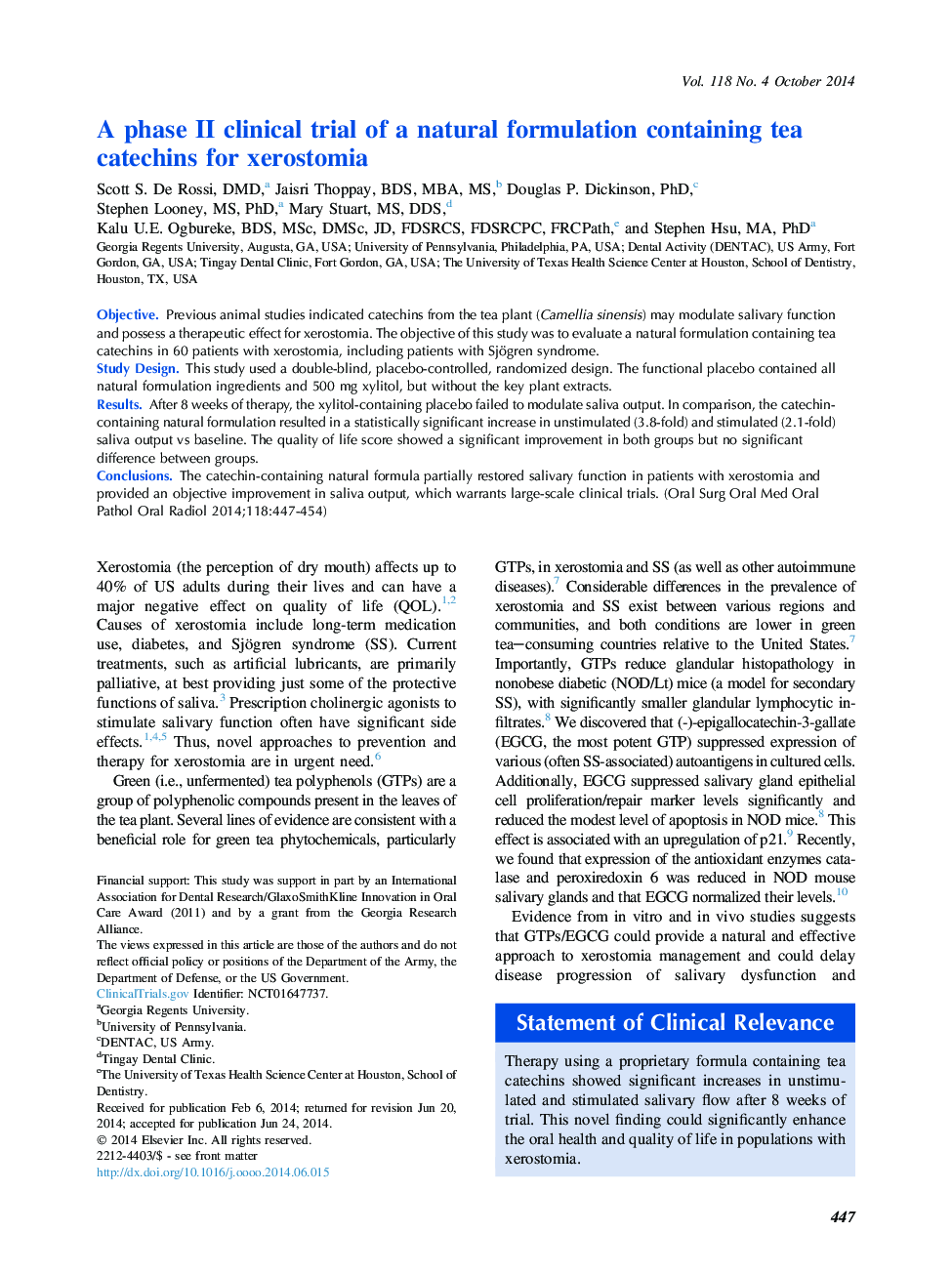| Article ID | Journal | Published Year | Pages | File Type |
|---|---|---|---|---|
| 6056281 | Oral Surgery, Oral Medicine, Oral Pathology and Oral Radiology | 2014 | 11 Pages |
ObjectivePrevious animal studies indicated catechins from the tea plant (Camellia sinensis) may modulate salivary function and possess a therapeutic effect for xerostomia. The objective of this study was to evaluate a natural formulation containing tea catechins in 60 patients with xerostomia, including patients with Sjögren syndrome.Study DesignThis study used a double-blind, placebo-controlled, randomized design. The functional placebo contained all natural formulation ingredients and 500 mg xylitol, but without the key plant extracts.ResultsAfter 8 weeks of therapy, the xylitol-containing placebo failed to modulate saliva output. In comparison, the catechin-containing natural formulation resulted in a statistically significant increase in unstimulated (3.8-fold) and stimulated (2.1-fold) saliva output vs baseline. The quality of life score showed a significant improvement in both groups but no significant difference between groups.ConclusionsThe catechin-containing natural formula partially restored salivary function in patients with xerostomia and provided an objective improvement in saliva output, which warrants large-scale clinical trials.
